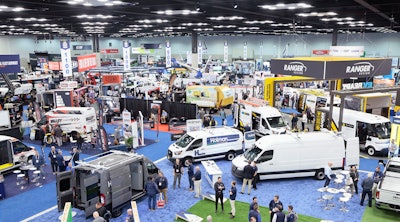
Work Truck Week 2024, was held March 5-8, 2024, at the Indiana Convention Center in Indianapolis, Indiana. The annual event, produced by NTEA – The Work Truck Association, encompasses The Work Truck Show, Green Truck Summit, NTEA Annual Meeting and Work Truck Week Ride & Drive, along with many educational sessions and networking opportunities.
Breaking recent attendance records, this year's event hosted 15,790 industry professionals from 29 countries and all 50 U.S. states. With 536 exhibiting companies, the week offered a look at the latest in commercial vehicles, equipment and technology.
 Jonah Leason, electrification product manager at Parker Hannifin, highlights the constraints and limitations of current power takeoff (PTO) systems and the potential of electric PTOs (ePTOs).NTEA Work Truck Week 2024
Jonah Leason, electrification product manager at Parker Hannifin, highlights the constraints and limitations of current power takeoff (PTO) systems and the potential of electric PTOs (ePTOs).NTEA Work Truck Week 2024
"While most of Work Truck Week is focused on commercial vehicles, equipment and technology available now, Green Truck Summit is all about what's happening in the future, exploring where the industry is moving and how we are getting there," explains Nikki Wilson, NTEA senior director of member services.
Throughout the week, commercial vehicle OEMs and experts outlined their goals for sustainability and emission reduction, supported by the launches of several new electric vehicle (EV) offerings and technologies.
Similar to the recent uptick in EV technologies in the consumer environment, the commercial truck market is taking strides to encourage the adoption of EVs in commercial fleet operations. However, commercial truck applications face some of the same electrification challenges many off-highway OEMs face, including building and rightsizing the proper charging infrastructure required to support the needs of a more electric future. As OEMs continue to develop strategies to overcome some of these challenges, speakers throughout Green Truck Summit addressed the issues and laid out resources and insights to pave a path forward.
 Mary Aufdemberg, general manager, product strategy and market development, Daimler Trucks North America, delivers the keynote address at the 2024 Green Truck Summit.NTEA Work Truck Week 2024
Mary Aufdemberg, general manager, product strategy and market development, Daimler Trucks North America, delivers the keynote address at the 2024 Green Truck Summit.NTEA Work Truck Week 2024
The discussion highlighted the challenges, particularly the importance of sustainable transportation infrastructure and ensuring that dealerships are prepared for zero-emission vehicles. Noting that partnership acceleration is the way forward, she recognized the recent formation of Powering America’s Commercial Transportation (PACT), the partnership of Daimler Truck North America, Navistar, Inc. and Volvo Group North America, established in January 2024 as the unified voice for medium- and heavy-duty zero-emission vehicle infrastructure.
 Tim Campbell, managing director at Campbells Electric Vehicle Consultancy, discussed the challenges of decarbonizing the transportation industry, emphasizing the need for clear policies and guidelines.NTEA - Work Truck Week 2024
Tim Campbell, managing director at Campbells Electric Vehicle Consultancy, discussed the challenges of decarbonizing the transportation industry, emphasizing the need for clear policies and guidelines.NTEA - Work Truck Week 2024
In addition, speakers addressed strategies for future-proofing battery electric vehicles, including life cycle planning, serviceability, safety, recycling, and educating end users about battery performance.
Weaved throughout the week was an emphasized message of the importance of building partnerships to bridge infrastructure gaps and address EV range anxiety by way of options for different battery capacities.
Tim Campbell, managing director at Campbells Electric Vehicle Consultancy, discussed the challenges of decarbonizing the transportation industry, emphasizing the need for clear policies and guidelines. Campbell echoed the need for partnerships to propel the industry forward, citing again that infrastructure is a major sticking point for the widespread adoption of electrified fleets.
"Across the globe, it's pretty much the same. Whether you go to India, China, Europe or the UK, everyone's in the same boat. We're all in it together as a team. That's a really important thing," said Campbell. "We've never ever had this, where everybody's learning from each other. We are all going that direction ... everybody is really into low emission or zero emission."
 Vocational trucks on display at Work Truck Show 2024, highlighting commercial trucks and equipment from Classes 1–8, including chassis, bodies, components and accessories.NTEA - Work Truck Week 2024
Vocational trucks on display at Work Truck Show 2024, highlighting commercial trucks and equipment from Classes 1–8, including chassis, bodies, components and accessories.NTEA - Work Truck Week 2024
"The commercial vehicle industry has taken ownership of the week and has made it the epicenter for showing off the best the industry has to offer every year," said Steve Carey, NTEA president and CEO. "The dedication and passion of our exhibitors and attendees has driven the continued expansion of Work Truck Week.”
 Palfinger North America shares details on PALFINGER TEC service cranes.Kathy Wells
Palfinger North America shares details on PALFINGER TEC service cranes.Kathy Wells
- Ram Professional's new commercial vehicle division
- Ford Pro's new extended range capability for E-Transit
- Mack Trucks' Mack MD Electric battery-electric truck
- GreenPower Motor Company Inc.'s GP Truck Body
- Morgan Olson and EAVX's new Proxima step van on a Freightliner Custom Chassis Corp. chassis
- REE Automotive Ltd. and Knapheide's new electric vehicle on the REE P7-C chassis cab (upfit with a Knapheide KUV body)
Along with several equipment and technology debuts, including:
- APSCO's dump truck display and control system
- DEL Hydraulics Inc.'s DEL Interlock System
- Shyft Group's Utilimaster Rapid Driver Cooling System
- Ranger Design's prototype pick-up truck utility system
- Palfinger's PAL Pro 58 mechanics truck and PSC 8600 TEC service crane
- Vanair's PTO shaft-driven underdeck all-in-one power system
- Lincoln Electric's Ranger Air 260MPX multifunction engine drive
- Ketchel Axle Systems eRhino electrified axle system for Class 3–8 vehicles
 Work Truck Week's Ride & Drive features the industry’s latest advanced technology and fuel, sustainability offerings and propulsion systems.NTEA Work Truck Week 2024
Work Truck Week's Ride & Drive features the industry’s latest advanced technology and fuel, sustainability offerings and propulsion systems.NTEA Work Truck Week 2024
As vocational trucks, OEMs and end users continue to travel on the path toward the more electric future of fleets, one thing is becoming more apparent: No one can do it alone. Alongside the evolving challenges of infrastructure, charging capabilities, regulations and standards, and sustainability goals, OEMs are also faced with meeting the efficiency and productivity requirements of electrified fleets across various industries and applications. Looking ahead, the industry seems to have adopted a team mentality, with the aim of working together and learning from each other's successes and failures to reach the common goal of a more electrified future.
Work Truck Week will return to Indianapolis March 4–7, 2025. Learn more at worktruckweek.com.

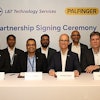


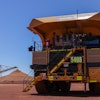
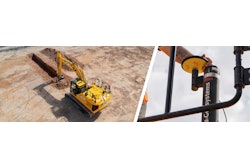
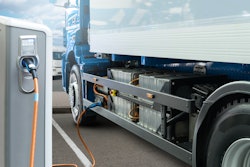


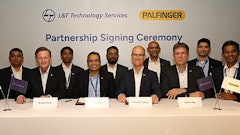






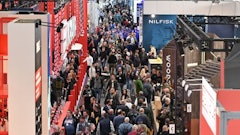

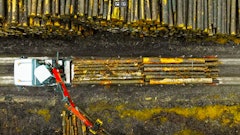

![Hcm Ax Landcros Press Release[32] jpg](https://img.oemoffhighway.com/mindful/acbm/workspaces/default/uploads/2025/11/hcmaxlandcros-press-release32jpg.mAEgsolr89.jpg?ar=16%3A9&auto=format%2Ccompress&fit=crop&h=135&q=70&w=240)